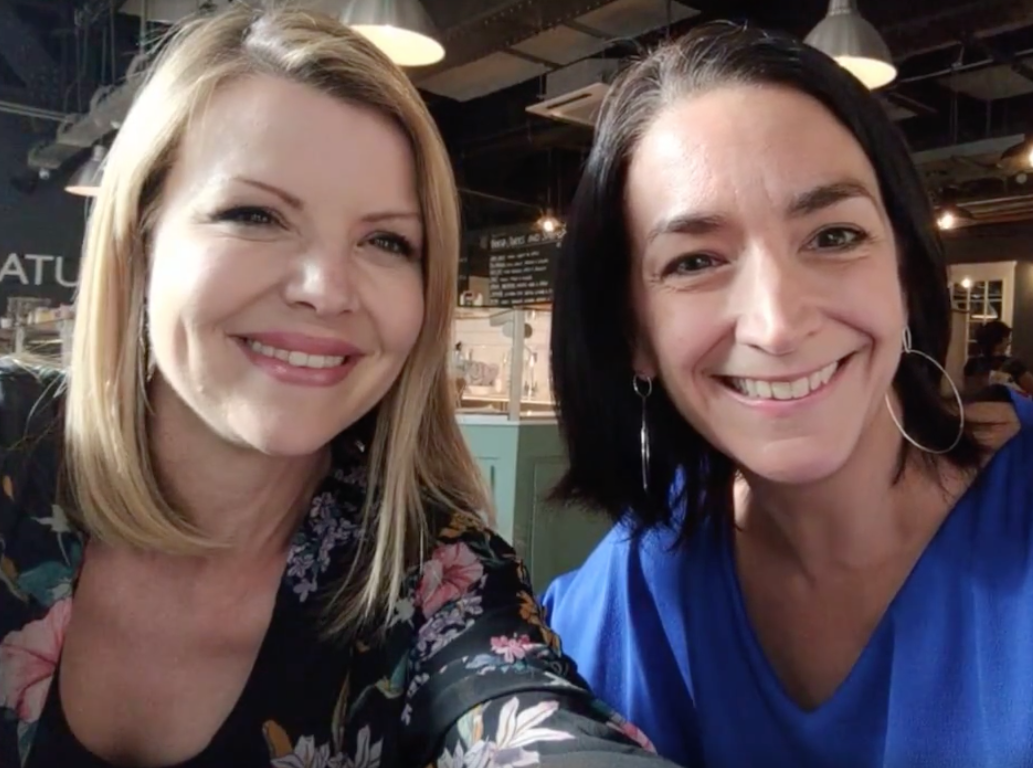My lightbulb moment came when I was recruiting a couple of new technologists for my team. I suddenly realised that I hadn’t seen a single female CV so I started investigating.
Stereotyping children
I traced the problem all the way back to kids. It was about so much more than my pile of male CVs.
It was systematic and deeply entrenched stereotyping of children before they are even born (baby showers are some of the most gender-stereotyped things I’ve ever seen), all the way up to adulthood. And it was just as detrimental to boys and men as it was to women.
Read more: We are Generation Tribe and our mission is to inspire and empower women and girls
Reading the horrible statistics on young male depression and suicide, I realised for the first time that this was all connected to the fact that the leadership, in every single area of our country, is in no way reflective of the population it is leading.
I started reading everything I could get my hands on and researching into the early hours of the morning.
I was mortified that I’d had my head buried in the sand for so many years. As a young mum, I was completely obsessed with finding a solution.
I entered the world of social media and that’s where I met Nicole Ponsford.
Looking for a solution to gender imbalance
After over a decade of being a teacher, specialising in digital subjects and supporting schools around new technologies, Nic worked for an educational charity as the digital education lead.
As a fellow woman in tech, Nic had always been passionate about smashing barriers. But it was her time outside of the classroom which spurred her into looking for a solution to gender imbalance.
After having girl/boy twins, Nic was struck by the lack of gender equality; it was incredible to see how they were treated so differently by some people. She was then asked to speak at BETT – an educational technology conference – in 2017, and wondered where on earth all the women were.
Writing about it in the Times Educational Supplement loads of people from the edtech world got in touch.
Nic realised there were a lot of people talking about it − but no-one was joining the dots. So Nic became determined to do so.
It was at that moment that Nic and I met on Twitter. We put our heads together and decided it was time to get things sorted – as professionals and as parents.
The GEC is our solution.
Our long term vision for the GEC is to build a gender equality platform for use in homes, schools and businesses.
Achieving gender equality in schools
There has been so much work done on achieving gender equality in schools, from our friend and GEC founding member Graham Andre’s BAFTA nominated BBC show No More Boys and Girls, to projects driven by passionate educators. But there’s nothing central – yet.
In signing the charter, and working towards being awarded a badge of gender equality, schools make a visible and public commitment to working towards gender equality in their institution.
Parents know that their child will be treated equally in every area. From the language teachers use to the activities and sports the students are allowed (and encouraged) to participate in. To the clothing and hairstyles they are allowed to wear, and the education about gender and equality that will be provided.
All the resources, examples, best practices, data and learning will be centralised and used to help generate a head of steam for change in schools throughout the UK and beyond.
Reinforcing the message at home
Parents can commit to being a gender-equal family and sign the charter.
In return, they are drawn into The GEC community and receive access to learning, resources and online debates and events to help them succeed in meeting their commitment.
If parents and teachers are working together at home and at school, a shared vision of equality would make an enormous difference.
Getting businesses to commit to gender equality
Extending the charter out to businesses completes the circle. Businesses can commit to becoming gender=equal, and we help them to do so.
It includes the removal of gendering in language and behaviours in the office, to bias removal in recruitment, education programs for staff and an equal approach to the responsibilities of parental leave and flexibility.
Even making a few small changes at a time could, when added together across businesses, change the UK we live and work in.
There are so many disparate groups doing amazing work on different pieces of this vast problem.
If we collected all of our brainpower, networks and resources, we know we will solve it.
Useful links
The GEC on Instagram
